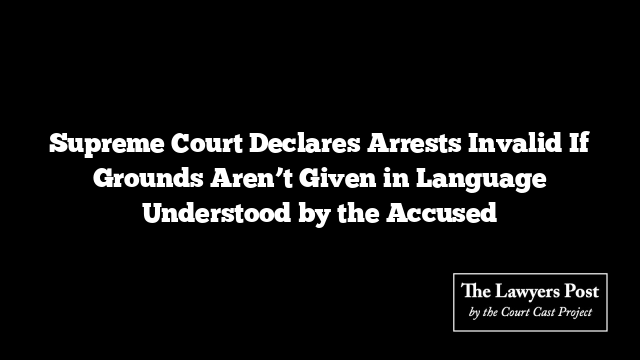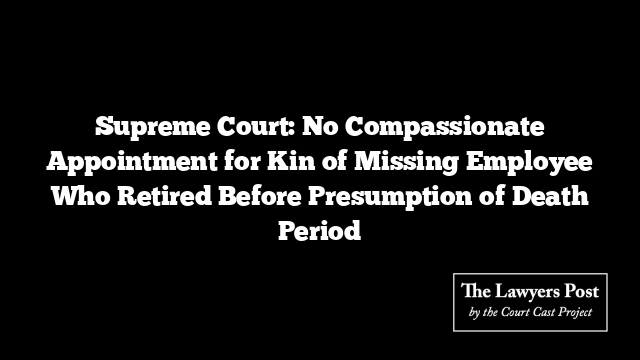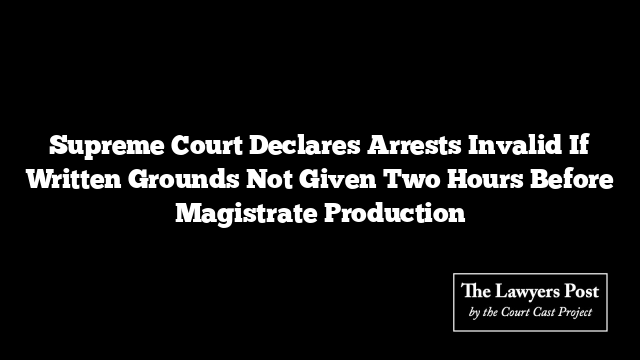In a significant ruling reinforcing personal liberty, the Supreme Court has held that an arrest and subsequent remand are illegal if the written grounds of arrest are not provided to the accused in a language they understand.
The Court made it clear that merely explaining the reasons for arrest in an unfamiliar language fails to satisfy the constitutional mandate under Article 22. “Such an approach renders the safeguard illusory and strikes at the very heart of Articles 21 and 22, which guarantee the right to personal liberty,” the bench observed.
Chief Justice BR Gavai and Justice Augustine George Masih delivered the ruling, expanding the principle that was earlier applied only to special legislations like the UAPA and PMLA. Now, this protection extends to all offences under the Indian Penal Code and the Bharatiya Nyaya Sanhita.
“The grounds of arrest must be communicated effectively — not mechanically. They must be given in writing and in a language the person comprehends. Reading them aloud in a foreign tongue or legal jargon is not enough,” the bench said, calling such clarity “the true spirit of constitutional protection.”
The Court also noted that providing written grounds in a comprehensible language benefits both sides — it safeguards the individual’s rights while also serving as proof for the investigating agency that due process was followed if the arrest is later challenged.
The ruling arose from a Mumbai hit-and-run case, where the petitioner argued that his arrest was illegal since the written grounds were never furnished in a language he understood. Although the Bombay High Court acknowledged lapses, it had refused to declare the arrest void, citing the gravity of the case.
Overruling that position, the Supreme Court declared the arrest illegal, reiterating that the right to be informed of arrest grounds is not a procedural nicety but a fundamental right integral to liberty itself.
“This is not a mere ritual,” Justice Masih emphasized. “It ensures that the accused can understand the allegations, seek counsel, challenge custody, and pursue bail — all of which are central to the idea of justice.”





